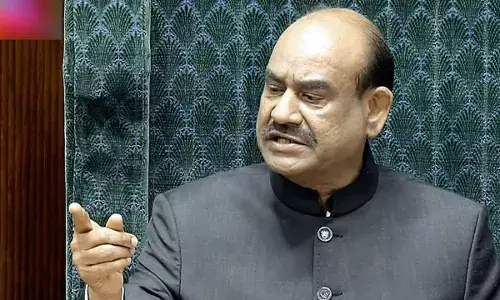Sebi comes out with guidelines for overseas investment by AIFs, VCFs

AIFs can invest in securities of companies incorporated outside India. Besides, VCFs are allowed to make investments in off-shore venture capital undertaking, subject to certain conditions.
NEW DELHI: Sebi on Thursday came out with new guidelines for Alternative Investment Funds (AIFs) and Venture Capital Funds (VCFs) for making investments abroad, under which overseas investee firms won't need to have an Indian connection.
Under the rules, AIFs can invest in securities of companies incorporated outside India. Besides, VCFs are allowed to make investments in off-shore venture capital undertaking, subject to certain conditions.
One of the conditions was that such overseas investments were allowed only in those companies which had an Indian connection.
Like, a company has a front office overseas, while having its back office operations in India.
"The requirement of the overseas investee company to have an Indian connection has been done away with," the Securities and Exchange Board of India (Sebi) said in a circular.
As per the fresh guidelines, AIFs or VCFs will be allowed to invest in an overseas investee company, which is incorporated in a country whose securities market regulator is a signatory to the International Organization of Securities Commission's (IOSCO) Multilateral Memorandum of Understanding or a signatory to the bilateral Memorandum of Understanding with Sebi.
Besides, AIFs or VCFs will not invest in an overseas investee company, which is incorporated in a country identified by Financial Action Task Force (FATF) as a jurisdiction having a strategic anti-money laundering or combating the financing of terrorism deficiencies to which counter measures apply.
Also, such entities have been prohibited from making an investment in a country that has not made sufficient progress in addressing the deficiencies or has not committed to an action plan developed with FATF to address such deficiencies.
AIFs or VCFs will have to file an application before Sebi for allocation of overseas investment limit in the format.
"If an AIF/VCF liquidates investment made in an overseas investee company previously, the sale proceeds received from such liquidation, to the extent of investment made in the said overseas investee company, shall be available to all AIFs/VCFs for reinvestment," the regulator said.
Further, AIFs or VCFs will sell the investment in overseas investee companies only to the entities eligible to make overseas investments.
AIFs or VCFs will have to furnish the divestment details of the overseas investments to the capital markets regulator in a specified format within three working days for updating the overall limit available for overseas investment by these entities.
Also, all the overseas investments sold/divested by them till date, will also be reported to Sebi within 30 days.
AIFs are funds established or incorporated in India for the purpose of pooling in capital from Indian and foreign investors for investing as per a pre-decided policy, while VCF is an AIF which invests primarily in unlisted securities of startups, early-stage venture capital undertakings mainly involved in new products, new services, technology or intellectual property right based activities or a new business model.















